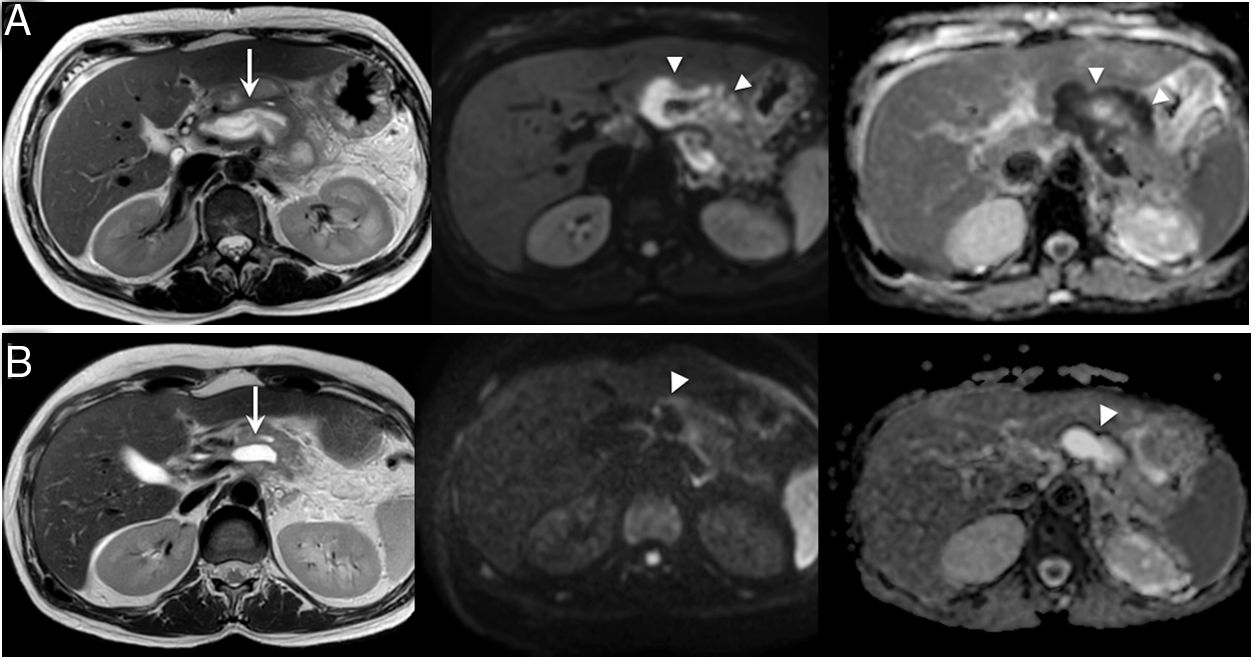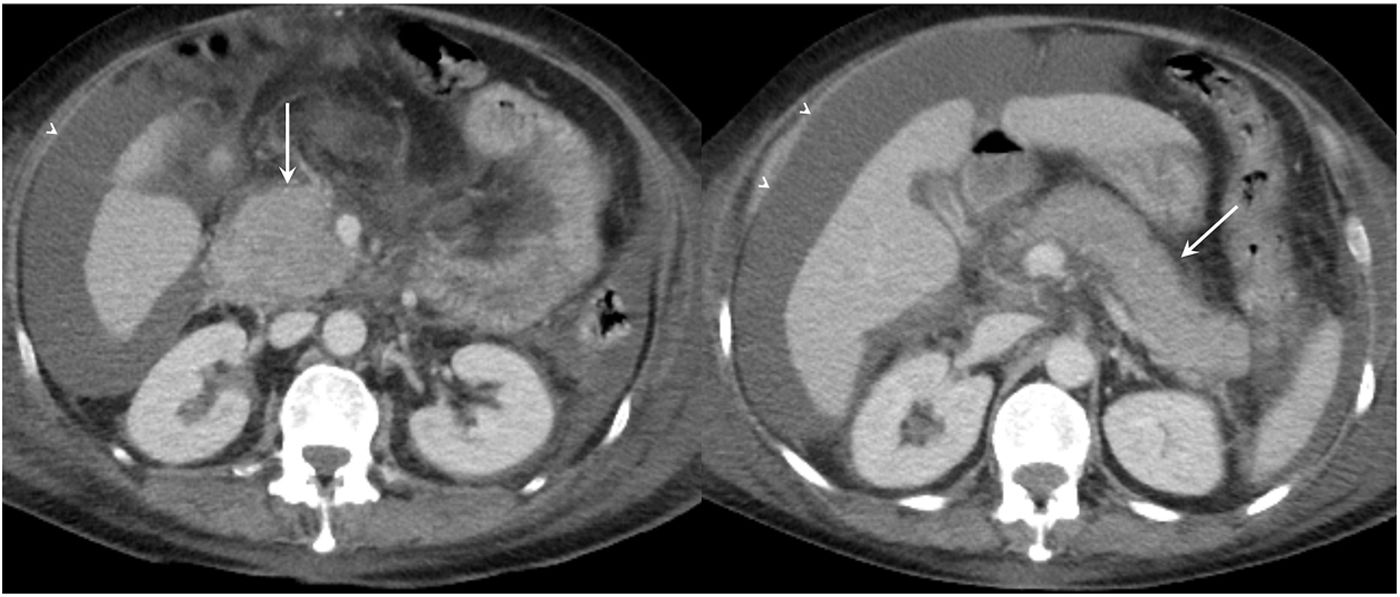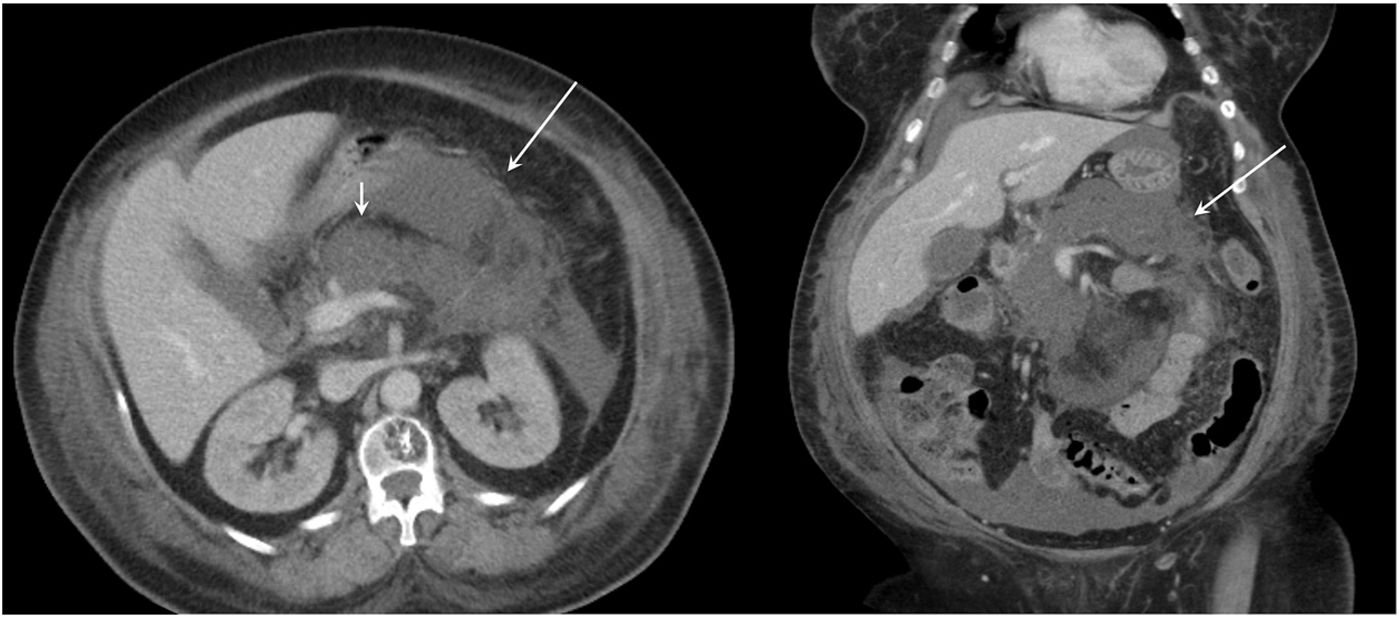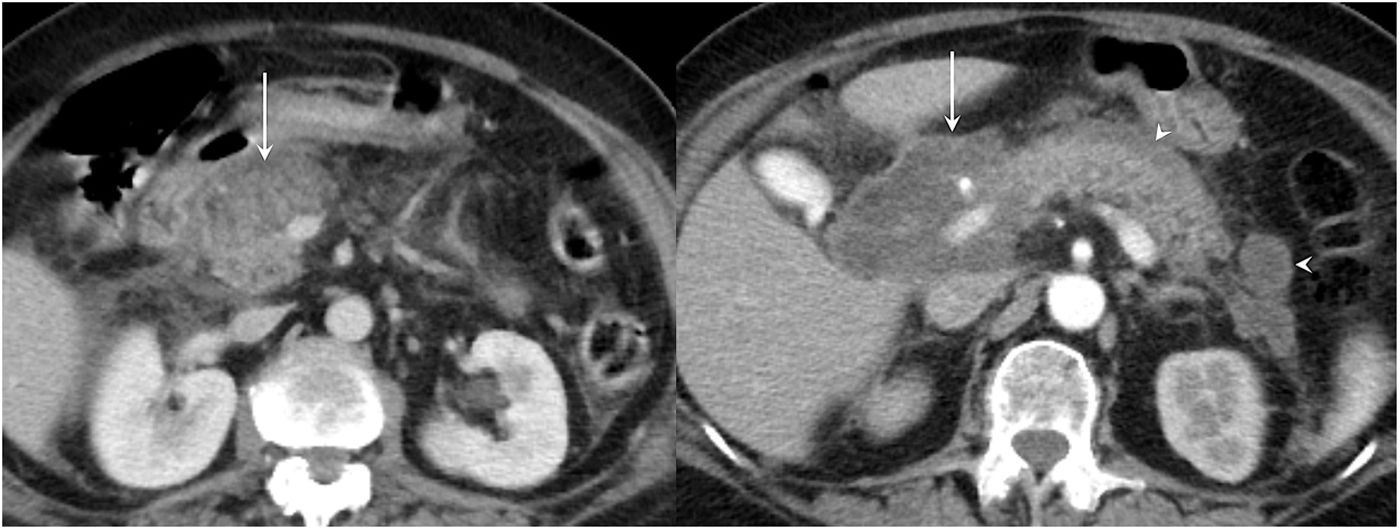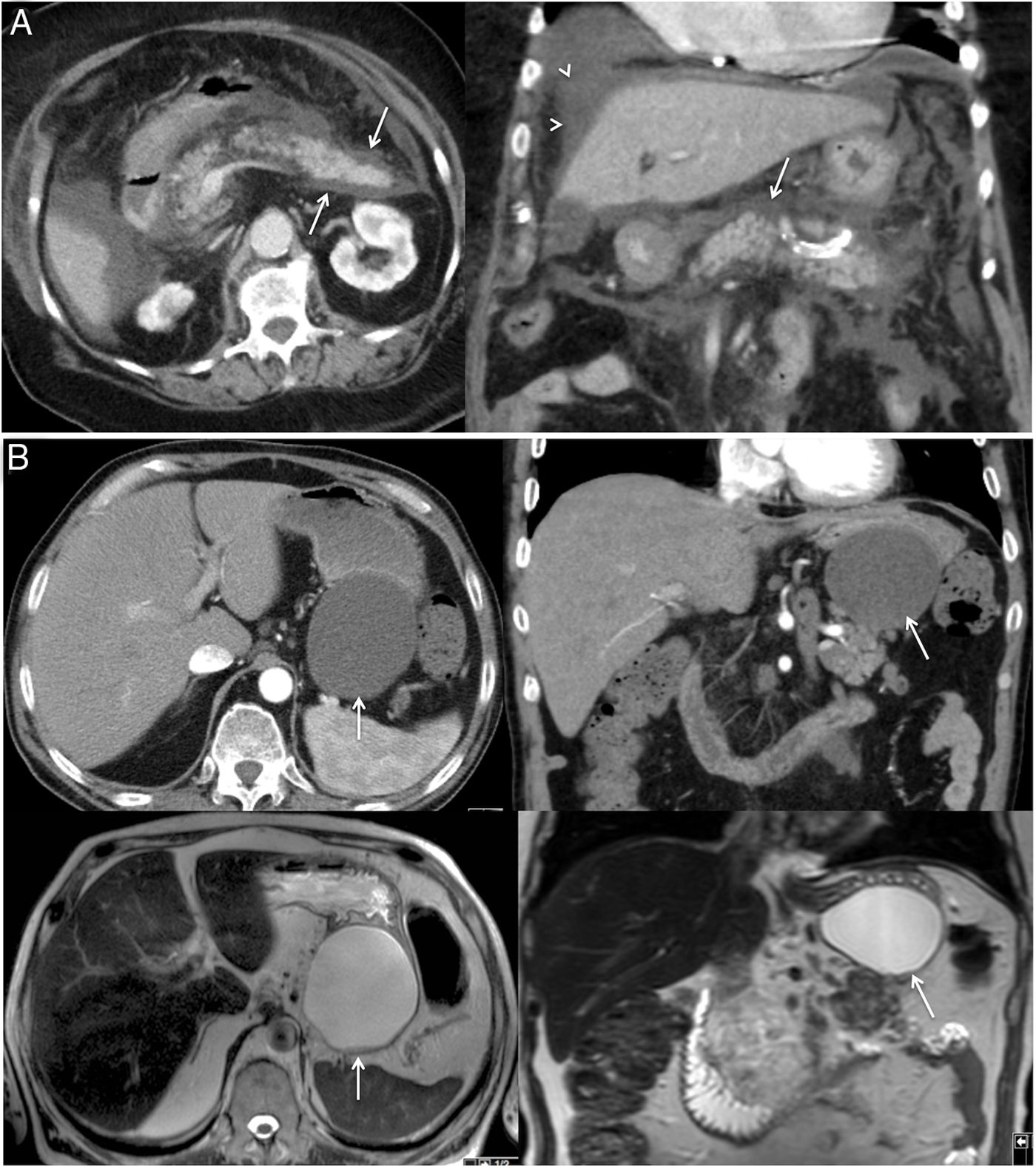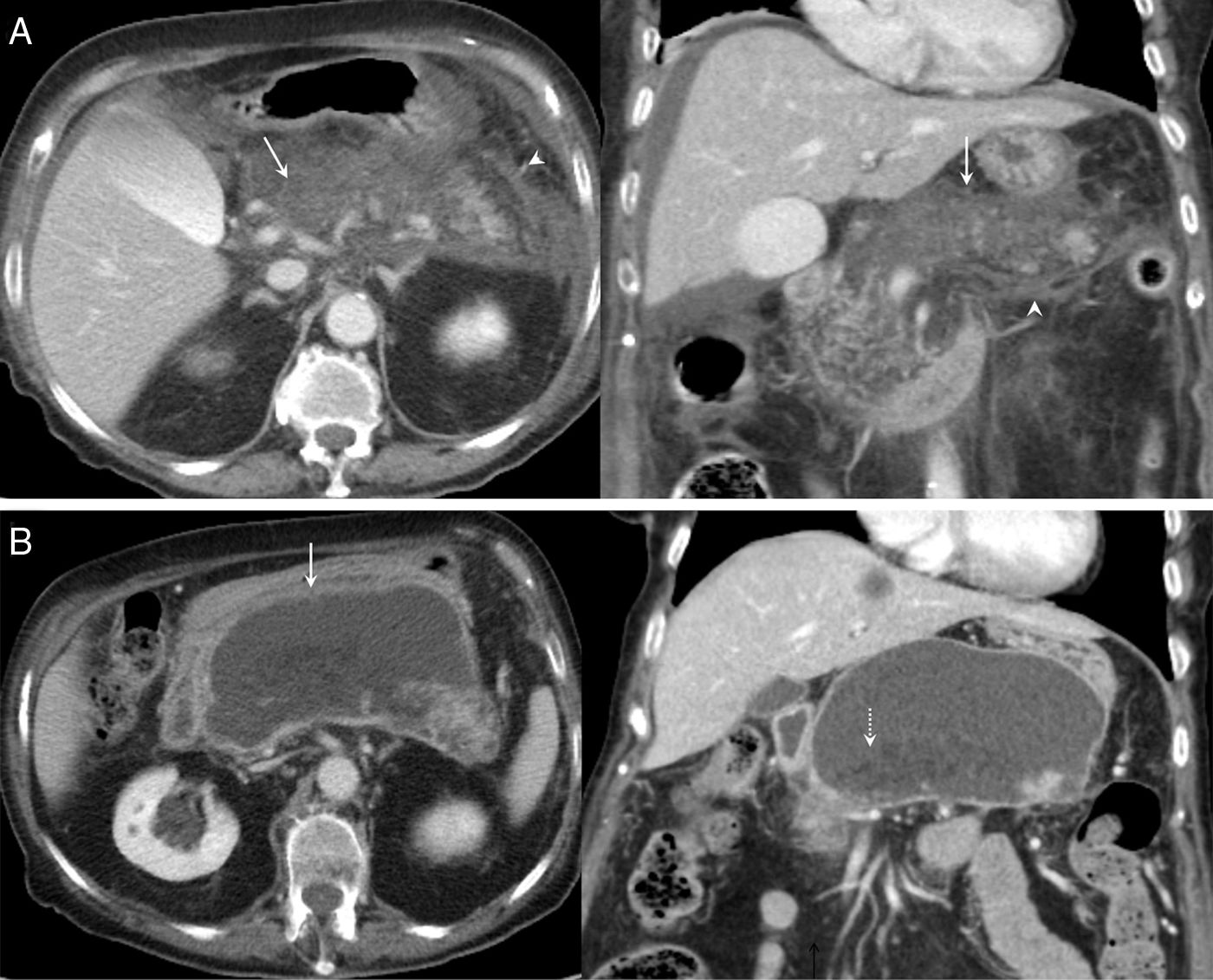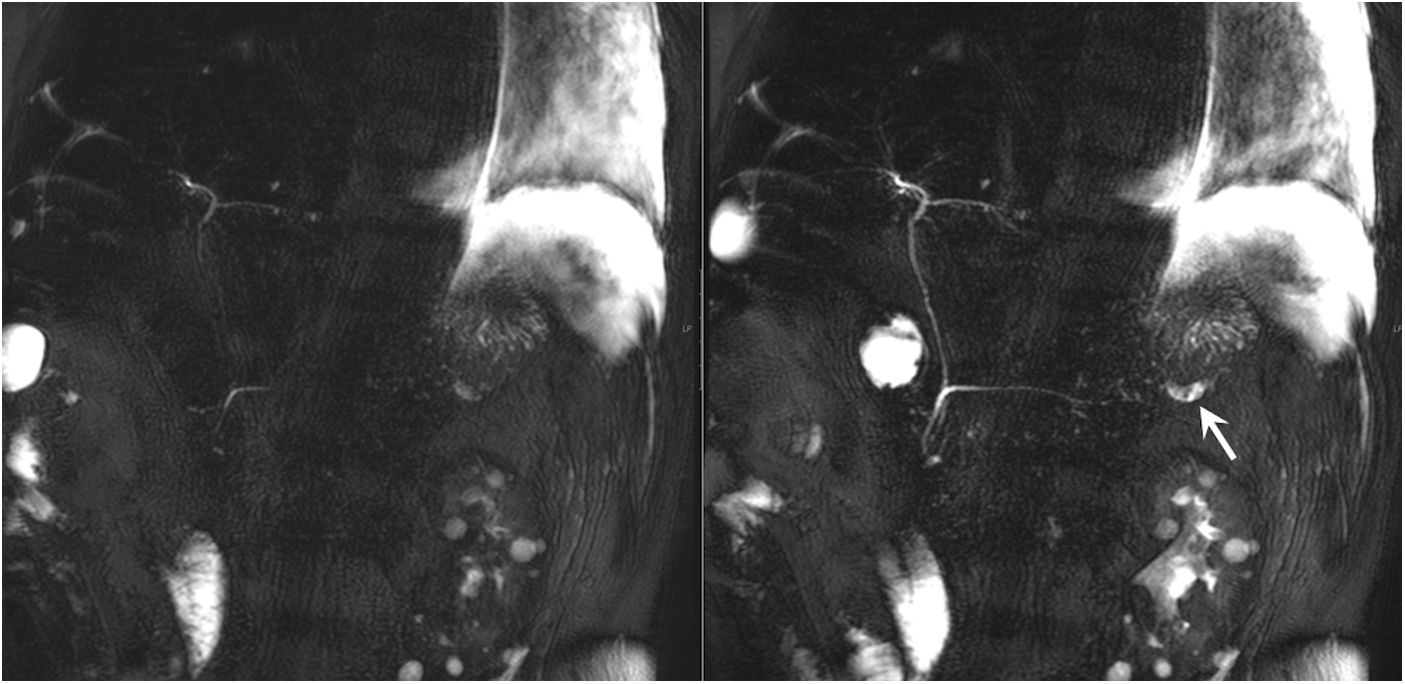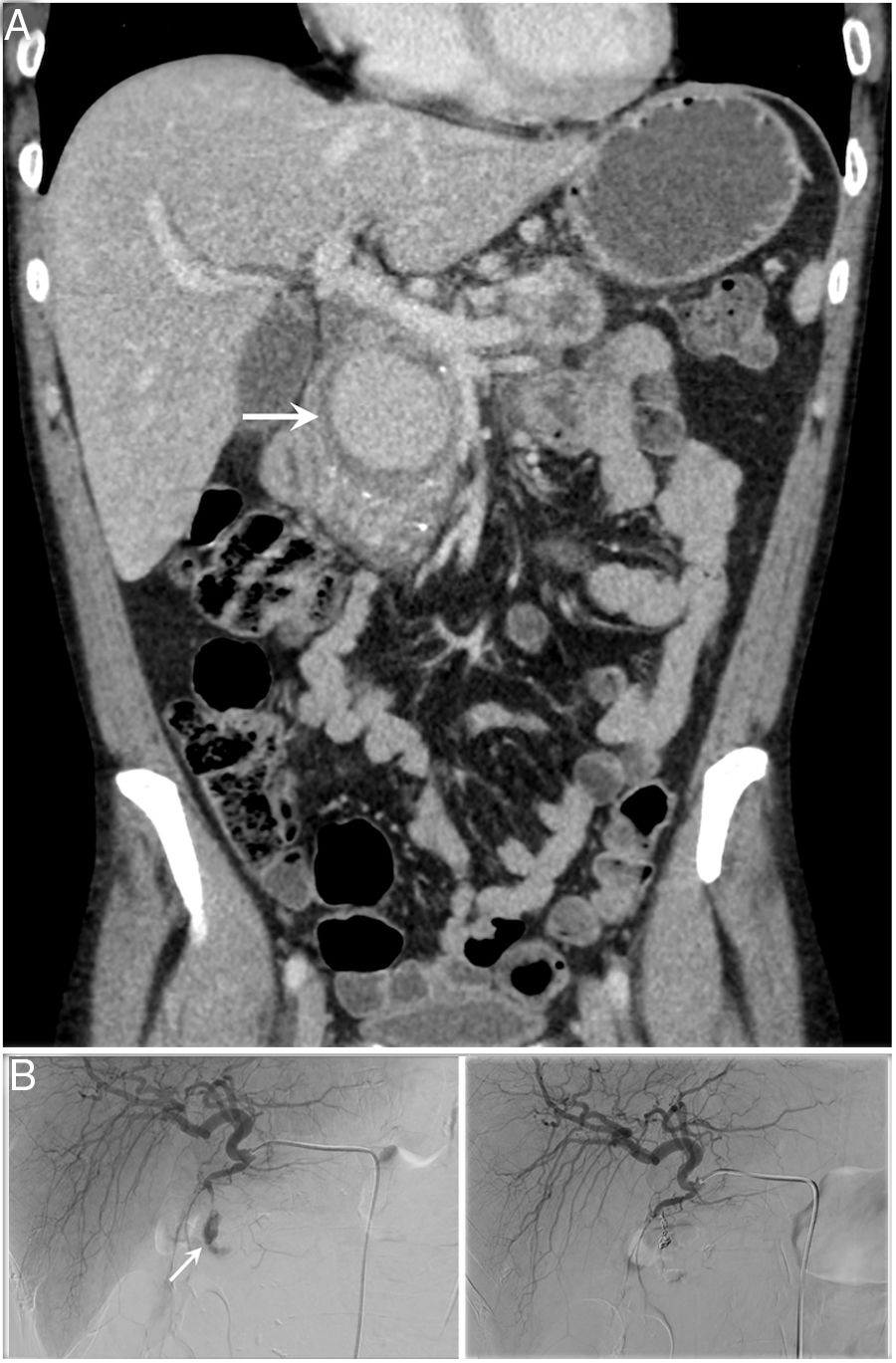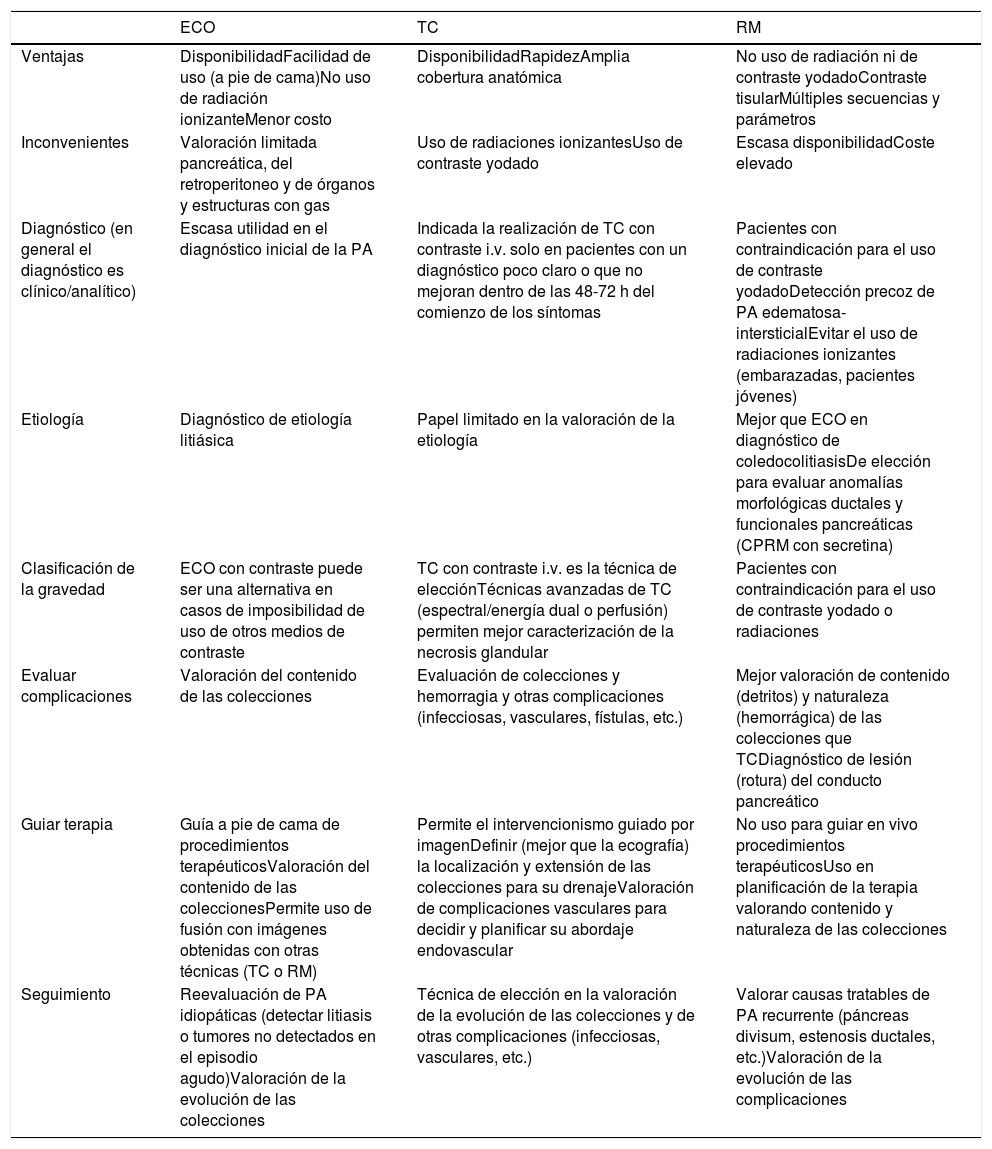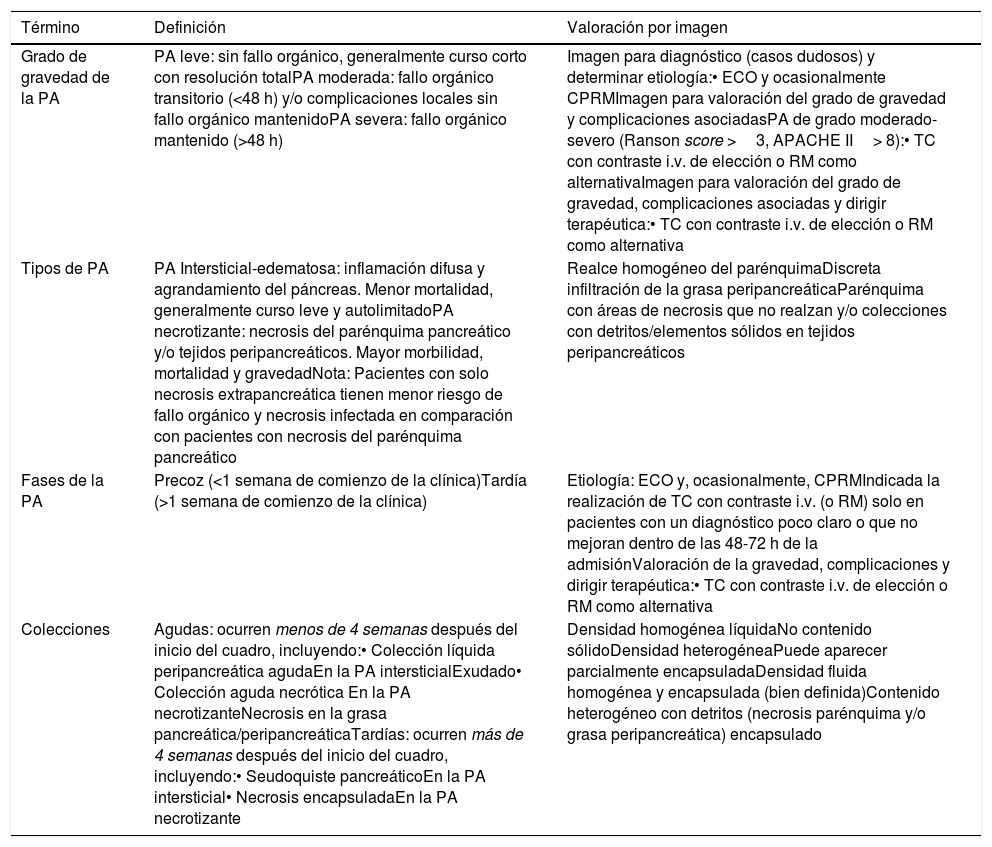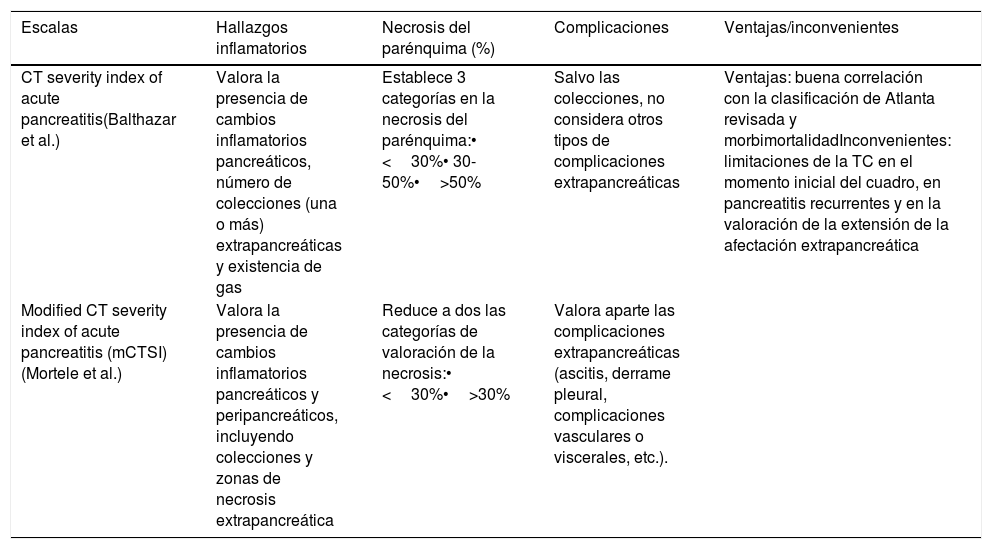La pancreatitis aguda es una patología común y potencialmente grave que tiene un curso clínico muy variable. Este artículo pretende revisar el papel de las distintas técnicas de imagen en el manejo de esta entidad, describir sus principales manifestaciones radiológicas y la nomenclatura específica asociada a esta entidad.
ConclusionesLas técnicas de imagen desempeñan un papel clave en el manejo de la pancreatitis aguda, desde el diagnóstico y la estadificación hasta la identificación y el tratamiento de las complicaciones, así como en la determinación de la etiología subyacente. Por ello, el radiólogo debería conocer las ventajas y limitaciones de cada modalidad de imagen en la valoración de esta patología, estar familiarizado con el amplio espectro de hallazgos radiológicos asociados a esta entidad, y conocer y usar adecuadamente la nomenclatura específica derivada de los criterios de Atlanta, lo que permitiría una mayor estandarización y calidad de los informes.
Acute pancreatitis is common; the clinical course of this potentially severe condition varies widely. This paper aims to review the role of different imaging techniques in the management of acute pancreatitis, describe the main imaging findings for this entity, and explain the terms and criteria used to classify them.
ConclusionsImaging techniques play a key role in the management of acute pancreatitis, from diagnosis and staging to identifying and treating complications, as well as in determining the underlying causes of the condition. For these reasons, radiologists should know the advantages and limitations of each imaging technique in the evaluation of acute pancreatitis, be familiar with the wide spectrum of imaging findings associated with it, and how to use the specific terminology derived from the Atlanta classification to ensure the standardization and quality of reports.












